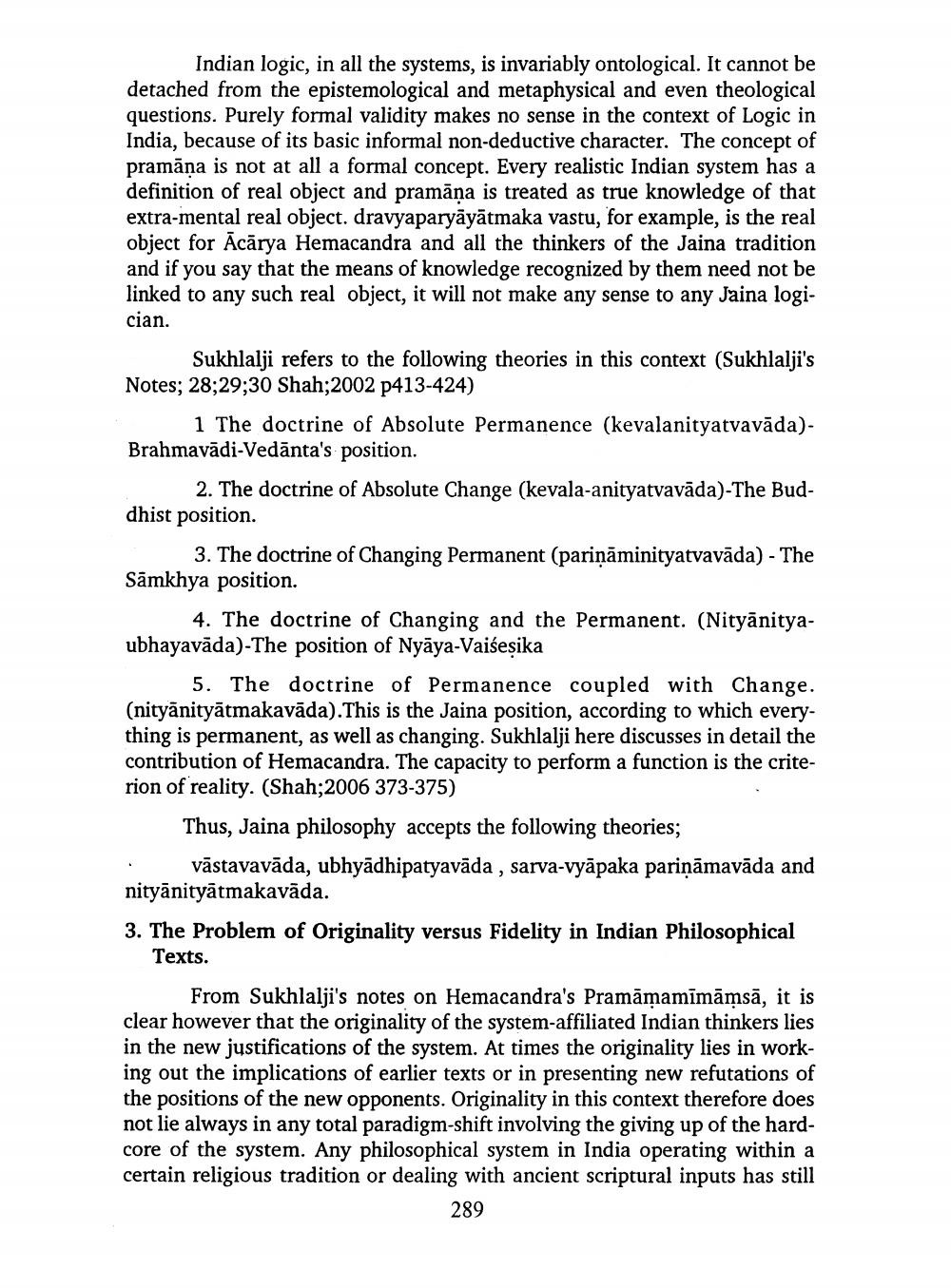________________
Indian logic, in all the systems, is invariably ontological. It cannot be detached from the epistemological and metaphysical and even theological questions. Purely formal validity makes no sense in the context of Logic in India, because of its basic informal non-deductive character. The concept of pramāna is not at all a formal concept. Every realistic Indian system has a definition of real object and pramāna is treated as true knowledge of that extra-mental real object. dravyaparyāyātmaka vastu, for example, is the real object for Ācārya Hemacandra and all the thinkers of the Jaina tradition and if you say that the means of knowledge recognized by them need not be linked to any such real object, it will not make any sense to any Jaina logician.
Sukhlalji refers to the following theories in this context (Sukhlalji's Notes; 28;29:30 Shah;2002 p413-424)
1 The doctrine of Absolute Permanence (kevalanityatvavāda)Brahmavādi-Vedānta's position.
2. The doctrine of Absolute Change (kevala-anityatvavāda)-The Buddhist position.
3. The doctrine of Changing Permanent (parināminityatvavāda) - The Sāmkhya position.
4. The doctrine of Changing and the Permanent. (Nityānityaubhayavāda)-The position of Nyāya-Vaibesika
5. The doctrine of Permanence coupled with Change. (nityānityātmakavāda). This is the Jaina position, according to which everything is permanent, as well as changing. Sukhlalji here discusses in detail the contribution of Hemacandra. The capacity to perform a function is the criterion of reality. (Shah;2006 373-375)
Thus, Jaina philosophy accepts the following theories;
vāstavavāda, ubhyadhipatyavāda , sarva-vyāpaka parināmavāda and nityānityātmakavāda. 3. The Problem of Originality versus Fidelity in Indian Philosophical Texts.
From Sukhlalji's notes on Hemacandra's Pramāmamīmāmsā, it is clear however that the originality of the system-affiliated Indian thinkers lies in the new justifications of the system. At times the originality lies in working out the implications of earlier texts or in presenting new refutations of the positions of the new opponents. Originality in this context therefore does not lie always in any total paradigm-shift involving the giving up of the hardcore of the system. Any philosophical system in India operating within a certain religious tradition or dealing with ancient scriptural inputs has still
289




